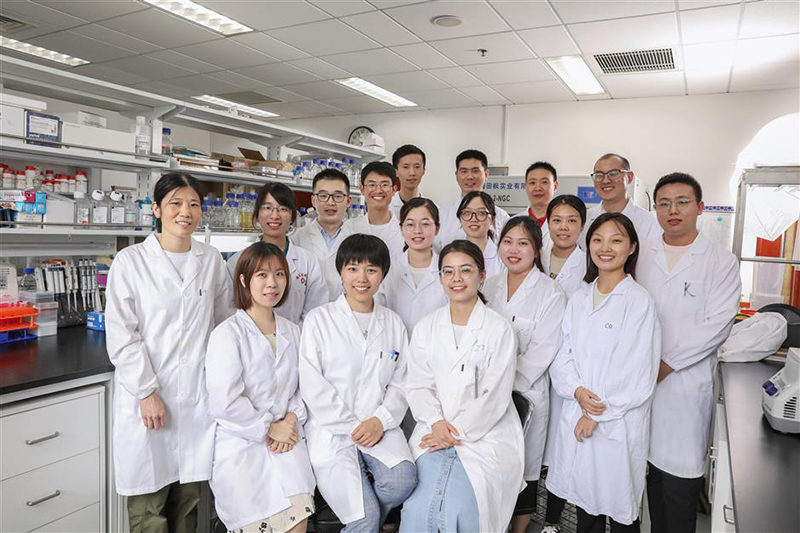发布时间:2023-03-06
Depression is still more or less believed to be a purely psychological disease in popular perception but cutting-edge brain research, which delves into the recesses of the human brain, is trying to fully explain the physio-chemical process. This offers the potential for the development of fast-acting drugs for people afflicted with the disease.
At the forefront of this research is Zhu Shujia, a senior researcher at the Center for Excellence in Brain Science and Intelligence Technology under the Chinese Academy of Sciences.
In a recent interview at the Shanghai-based center, Zhu related how some seemingly anecdotal occurrences have helped reaffirm her faith in the societal value of her research.

Zhu Shujia examines a protein electrophoresis test result.
She said that a couple of years ago a friend's 70-year-old aunt did not feel her usual self, but subsequent medical checkups ruled out the possibility of any organic disease. So, the family did not feel any need for further intervention, until it was too late – the aunt took her own life. It was only on hindsight they realized that she was suffering from severe depression.
Zhu said that many of us undergo routine annual physical check-ups, and are declared fit in the absence of any organic abnormalities, without anyone being bothered with symptoms of depression.
The sad truth is that depression is one of the most common mental diseases, affecting 350 million people globally, and 95 million in China, with serious consequences: Annually some 800,000 take their own lives.
The action of first- and second-generation anti-depressants was slow, taking at least three weeks for its effect to be felt, and with significant side effects. They are utterly useless for 30 percent of the patients.
By comparison, the new generation of fast-acting antidepressant drugs can be used for treatment-resistant depression and those cases with suicidal tendencies, and can take effect in 2 to 4 hours.
A candidate is ketamine, which Zhu's team has been working on, with significant progress. Once a general anesthetic and tranquilizer, it can help relieve symptoms of depression within one hour, though its drawbacks are obvious.
Taken in large doses it causes hallucinations, raising the problem of substance abuse. There has been a concerted medical effort to improve it and turn it into a safe drug for medical use.

Zhu Shujia (center) poses with her team at the Center for Excellence in Brain Science and Intelligence Technology, Chinese Academy of Sciences.
One of Zhu's latest research findings was published in an article titled "Structural basis of ketamine action on human NMDA receptors" in Nature magazine in August 2021.
The scientific community believed that "these findings may accelerate drug discovery efforts for novel ketamine-based antidepressants."
While celebrating with her team the acceptance of their article in June last year, Zhu waxed sentimental. "This is the happiest day, but also one of the saddest. A friend of mine, who had been an alcoholic after succumbing to depression, died of severe pancreatitis. We are making progress, but we are not going fast enough," she said.
As a woman scientist engaged in a field traditionally dominated by males, managing life-work balance must have posed a special challenge? Zhu said that there is no balance to speak of. There are only priorities, and sacrifices.
In fact, on the day she gave birth to her daughter about four years ago, she was still busy with her office work. After a two-week maternal leave, she was back in office.

Zhu Shujia gives a demonstration to her students.
Towards midnight one day, she got a phone call in her lab from her daughter, asking when she would be home. She was ready to go, but when she opened the door, she was greeted by three of her students waiting to discuss their research.
The same kind of perseverance and resilience have been manifest in Zhu's life experience so far.
She was born in a mountainous village in Fenghua, neighboring Zhejiang Province. After studying in Zhejiang University of Technology and then East China Normal University, she went for further studies to France and the United States, before coming to work at the center in 2016.
She has come a long way from that secluded village in Fenghua, but apparently she still has a long way to go.
Source: SHINE Editor: Xu Qing 2023-03-06
https://www.shine.cn/news/in-focus/2303066962/
 附件下载:
附件下载: